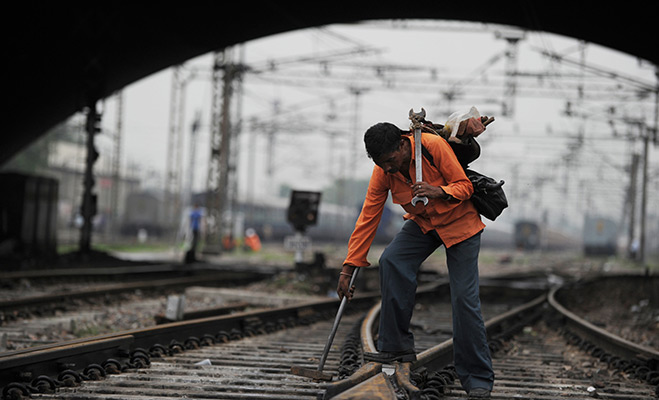India to try to redefine infrastructure
Government looks to expand definition of infrastructure in renewed attempt to boost growth

The never-ending quest for a coherent and meaningful investment in India’s infrastructure has led to the government seeking to widen the definition of the term to encourage a boost in industrial activity, after a disappointing year for the country’s manufacturing sector.
South Asia’s economic powerhouse has for years been planning to overhaul its inadequate infrastructure sector, which has traditionally meant spending focused on building new roads, railways, airports and power plants. Huge sums of money have been set aside for grand projects, such as the $90bn Delhi to Mumbai Industrial Corridor, as part of a series of five-year plans.
The current plan, the twelfth, is said to require as much as $1trn to modernise the country, but there have been calls from the private sector to widen the definition of infrastructure to include the telecoms, housing, education and shipping sectors.
India’s Finance Minister, P Chidambaram, is set to unveil the budget for the next year at the end of the month, and is expected to include new sectors within the infrastructure umbrella, so that they can benefit from preferential tax rates with easier access to both domestic and international funding.
The country saw just 0.7 percent growth in manufacturing between April and December last year, representing a significant decline on the previous year’s figure of four percent.
Encouraging foreign investment in infrastructure has often proved problematic for India, with investors wary of the somewhat chaotic planning laws and bureaucratic maze that needs to be navigated. While many of these large projects have been built, others have remained on the drawing board for years.
On Sunday, Anand Sharma, India’s Commerce and Industry Minister, travelled to the UAE to persuade the Abu Dhabi sovereign wealth fund to help pay for new infrastructure projects and boost trade ties between the two regions.
He told reporters: “India is committed to strengthening and expanding cooperation with UAE in other sectors such as construction, downstream products in the petroleum and natural gas sector, agriculture and food processing, science and technology, renewable energy, IT, education, training, health and financial services.”
Trade between the two regions was $145bn last, a significant rise on the $67bn five years ago. Sharma added that he felt improved links should see that figure rise again this year: “I expect that with the kind of dynamism which has been shown in our trade established with [the] UAE, this year we will cross $175bn.”













